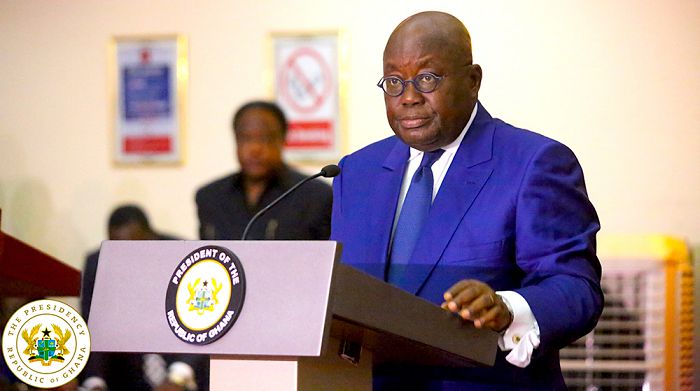
Experts tell ECOWAS leaders to indemnify Mali’s junta
Some international relations experts and a former diplomat have cautioned ECOWAS leaders to hasten tactfully in pressing for a quick return to civilian rule in Mali.
They have also proposed the provision of a safe passage for the junta to assure them of security and protection before handing over to a civilian administration.
Advertisement
The Dean of Academic Affairs at the Ghana Armed Forces Command and Staff College (GAFCSC), Dr Vladimir Antwi-Danso; a fellow of the Institute of Democratic Governance (IDEG), Dr Kwesi Jonah, a former diplomat, Dr Nyaho Nyaho-Tamakloe, and a politician and tax law expert, Mr Chris Ackummey, are unanimous in their opinion that a diplomatic road map that addresses the specific needs of the Malian people is the way out for the landlocked country.
They sounded the caution in separate interviews after a meeting between ECOWAS leaders and Mali's military junta in Accra on September 15, 2020 had failed to agree on the transfer of power to civilian rule, raising concerns about the political standoff in Mali and regional security.
The regional bloc wanted the military leaders to immediately hand over power to a civilian government.
ECOWAS had imposed economic sanctions on Mali after the coup and demanded that the junta hand over power to a civilian administration.
There are fears that the coup can undermine the fight in Mali and the Sahel Region against Islamic militants with links to al-Qaeda and the Islamic State.
Indemnity clause
Dr Jonah proposed indemnity for members of the junta to guarantee them protection.
“The reason members of the junta are reluctant to hand over power to a civilian administration is the fear of what will happen to them once they hand over. So for lasting peace in Mali, any road map to a civilian administration should have indemnity clauses that will assure the military forces of safety and protection,” he said.
Dr Antwi-Danso, however, cautioned the ECOWAS negotiators not to stampede the process but to allow Mali to transition to a democracy.
He said protocols that denounced the military for overthrowing a civilian regime should stay, but must assist Mali to chart a road map based on national consensus.
“We need to help a transition to that normalcy, but not to stampede the junta to hand over quickly — the junta is now to make a charter and make an 18-month transition — we need to help bring about a kind of understanding between the opposition and the junta,” he said.
Persuasive approach
The former Ambassador to Serbia, Dr Nyaho-Tamakloe, rather wanted a more persuasive approach to deal with the crisis.
“ECOWAS leaders should try and talk the soldiers out of this situation by going about it diplomatically. This is because a large number of the population is behind the military junta, and so ECOWAS leaders should be tactful about the situation,” he said.
Mr Ackummey, for his part, preferred the full application of the tenets of the rule of law in order to bring sanity to Mali.
“To bring lasting and durable peace to Mali, stakeholders in that country must do the right thing by upholding the principles of the rule of law and good governance. There is no policy that can stop the military from intervening in any country until there is the full application of the rule of law,” he said.
ECOWAS leaders said they would be willing to allow a transitional government to stand for 18 months, longer than the original one year it had asked for.
Sanctions
They also said they would fully “accompany” Mali towards the restoration of constitutional order and lift sanctions once it had a President and a Prime Minister in place for the transitional period.
Mali has struggled to regain stability since 2012 when ethnic Tuareg rebels and loosely aligned armed groups seized the northern two-thirds of the country, compelling the former colonial power France to intervene to temporarily beat them back.
As the government and international actors have sought to restore peace in the north, violence has steadily increased in the country's central region, where the state is largely absent, and spilled into neighbouring countries.
Those attacks grew five-fold between 2016 and 2020, with 4,000 people killed in Mali, Niger and Burkina Faso, up from about 770 in 2016, according to the UN.
Hundreds of thousands of people have been forced to flee from their homes, and thousands of schools have closed.



